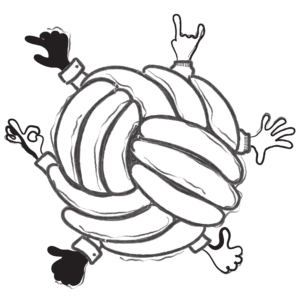De-risk your Data Product project

A two days Workshop to build high-performance data products in industry
Around 80% data project in Industry will not be deployed in Production. « Misalignment » could be a good summary. The problem solve by the new data based application is not a priority for the Industry. The solution deployed is not usable by the ones who are at the shopfloor. Solution is not technically adapted. Data readiness is not enough to tackle the identified problem. And so on.
After years deploying Data Products in several industrial contexts, we have synthetized our learnings in a result proven methodology; inspired by the Data Model Canvas framework.
It builds the necessary alignment between all stakeholders on the problem to solve.
As it’s context specific, the analytical techniques, methodologies and tools selected will be the most appropriate.
The unique focus is deployment in production. This implies a concrete specification of the data product and the identification of the necessary changes for effective adoption.
Last but not least, potential challenges being addressed early in the process, it facilitates risks identification and mitigation, reducing the likelihood of costly setbacks late on.
A single document for your Data Driven Application Roadmap
Following the principles of the Agile/ Lean methodology, the main Objective is to generate the Data Product Roadmap. A 360 degrees view of the objectives, needs and constrains of management, industrial owners, data experts and technical teams is formalized in the same document.
With this Data Canvas model, the Data Product is designed by the targeted users. The selection of the analytical techniques, methodologies and tools selected by Data Teams and IT experts is based on an « industrial » understanding of the context.
Every involved party being invited at the workshop table secures the Risks identification and mitigation plan definition.
Lastly, a collaborative workshop leads to the precise identification of the resources, their needed allocation and as a conclusion the agreed project planning.
It’s essential, before starting this journey, that industrial experts already have a basic understanding of the concept of data analytics. Moreover the use case is selected. We will work on the implementation, the identification part having been done previously.
An organization that sets the tone for the project
In case it was not yet clear (…), this workshop aims to frame a solution for an identified problem or an identified opportunity. Therefore, the outcome of the workshop can be considered as the Kick Off of the project.
In that sense, the Industrial Unit (e.g. production or quality or maintenance, etc.) has already been picked up. As well as all result driven meetings, the number of participants is reduced to keep everyone focused and productive.
A team of 5 people is the ideal size including the process owner, a key user acting as the representant of the end users, a data expert, IT and OT representants. To find the right tradeoff between conflicting needs, everyone will to be in the room all the time. The Decider will be present during key milestones to validate the decisions.
This 2 days onsite Workshop is structured around sessions organized to let participants handle daily operations constrains and potential emergencies.
Two Days to create the right solution to the most impactful problem
The Workshop is divided in 3 blocks, each of them addressing a specific dimension of the project. All the participants are involved and are contributing in all sessions. This collective work is key to formalize project specifications in a structured and cohesive manner.
Block 1 - Qualifying the Problem and Framing its Data Context
Problem Definition: What is the problem and why it’s a problem? Whose the problem is? Current Workarounds? Alternatives that could bring more value with less efforts?
Value: costs of the problem, expected savings and how they will be measured, etc
Risks: What will happen if the problem is not addressed and what are the risks while solving it?
Data Sources: What are the available data sources, their accessibility and representativity? Which are the data formats? How the data is managed? etc
Data Gathering: How to collect the data? Which data calculation, cleaning and/or transformation are necessary?
Block 2 - Specifying the Solution, including functional and technical axes
Solution Definition: What will be the solution? Which is the type of output expected (report, dashboard, Decision support system, Automated action)? Its characteristics (offline, real time)?
Design UX: How the user will access the solution (web app, incorporated in expert system, other)? UI characteristics, etc
Stakeholders: describing the final users? (the ones who will apply the results on a daily basis in their jobs), the people impacted directly and indirectly
Problem Classes and Methods: How can the user problem translate into Data Analytics / ML tasks? Definition of the tasks’ workflow (sequences, dependencies, unitary and global performance)? Which analytics methods could be used and which ones fit best the use case characteristics? Possible training strategies? How the model maintenance will be organized?
Integration: How does the solution integrate in the current workflow and into the application layer? Will the solution requires additional infrastructure resources?
Block 3 -Data Product Implementation
Resources: What will the project cost? What is the infrastructure cost for setup and maintenance? Which roles are required to support system development and operation? Budget evaluation.
Organization: Definition of the phases and main tasks, workload estimation, planning assesment, project governance, etc
KPIs: How to evaluate the models? How much uncertainty can be handled? How will be monitored the model performance over time?
Performance: How the impacts will be measured? How the ROI is calculated? What metrics will change? What are the quantitative objectives for these metrics?
Crafting Excellence: A Workshop on Formalizing Technical and Functional Specifications for Industrial Data Solutions.
Take a look at our others workshops that can be combined to help you ease and speed your Industrial Data Journey
